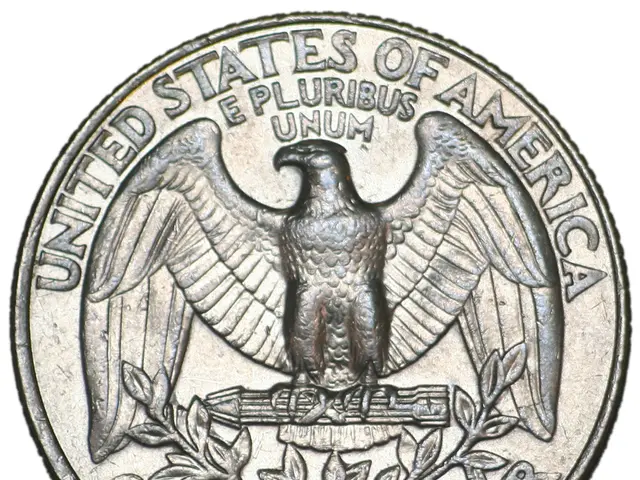Street performing artists face a dip in earnings due to Cash's decline, but mobile applications help maintain their financial stability
=================================================================================
The rise of digital payment apps like Venmo, PayPal, and Cash App has extended beyond everyday transactions, with street performers across the United States adapting to this new norm to receive tips.
In a significant shift, street performers such as musicians, magicians, and buskers are leveraging these platforms to continue earning income amidst the decline of cash transactions. This trend reflects a broader societal shift towards cashless transactions, with nearly 87% of payments already cashless in 2024, and projections of up to 94% by 2027.
While digital tipping helps performers continue to earn income, they often find that digital tips tend to be smaller than cash tips and that these payment methods may reduce the personal connection with their audience, which can influence generosity.
To facilitate digital tipping, performers are implementing several strategies:
- Displaying QR codes linked to payment apps prominently near their performance area to encourage easy digital contributions.
- Using multiple apps (Venmo, PayPal, Cash App) to accommodate diverse audience preferences.
- Leveraging social media and digital platforms to build followings beyond physical locations, creating new revenue streams and possibly professional career paths.
One such platform is busk.co, created by Berlin-based filmmaker Nick Broad in 2012 while working on a documentary about street performers. This nonprofit payment site allows performers to receive tips via Apple Pay, Google Pay, and credit card. However, fewer performers in the United States have taken up busk.co compared to countries like the United Kingdom, Canada, and Australia.
Despite these adaptations, some performers report that digital payments cannot fully replace the immediacy and warmth of cash interactions, but the technology is essential to offset the decline in cash availability. Performers like Chadd "Wacky Chad" Deitz think that not accepting digital payments could lead to survival issues for street performers.
The decline in cash payments is affecting street performers, with magicians and musicians turning towards digital payments to make money from their performances. However, performers like Natalia Paruz, also known as the Saw Lady, who performs musical saw acts on subway platforms, have noticed a decline in cash tips. On a recent Thursday at the Herald Square station in midtown Manhattan, Paruz's tip bucket only showed a few dollar bills and coins halfway through a three-hour performance.
The decline in cash tips may be due to rising costs of housing and food, causing audiences to save money by not tipping street performers. Nevertheless, cash still remains popular among older and low-income Americans, with Americans ages 55 and older using cash at almost double the rate of 18- to 24-year-olds, according to Federal Reserve data.
In summary, the decline of cash has led street performers in the U.S. to embrace digital tipping options like Venmo, PayPal, and Cash App, although this new norm brings challenges such as smaller tip sizes and altered audience dynamics. As the trend towards cashless transactions continues, performers will continue to adapt and innovate to thrive in this changing landscape.
- Street performers, such as musicians and magicians, are utilizing digital payment apps like Venmo, PayPal, and Cash App to receive tips, as cash transactions decline, which is expected to reach up to 94% by 2027.
- To facilitate digital tipping, performers implement strategies like displaying QR codes for payment apps, using multiple apps to accommodate diverse audience preferences, and leveraging social media to build followings beyond physical locations.
- One such platform for digital tipping is busk.co, which allows performers to receive tips via Apple Pay, Google Pay, and credit card, but its adoption in the United States is less compared to countries like the United Kingdom, Canada, and Australia.
- The shift to digital payments brings challenges, such as smaller tip sizes and altered audience dynamics, but is essential for street performers to offset the decline in cash availability and potentially ensure their survival.




